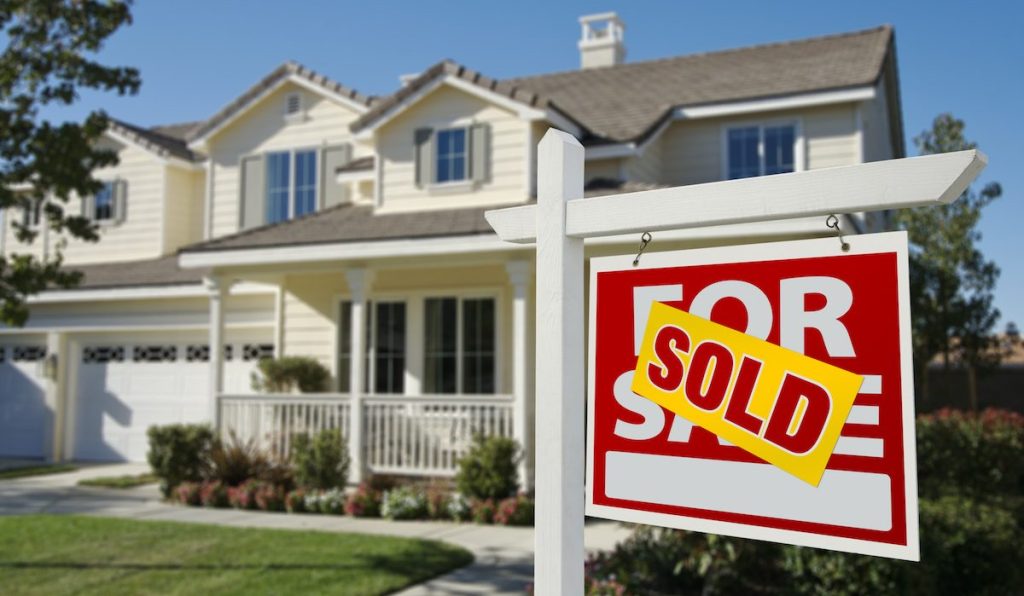Existing home sales fell for the fourth consecutive month in May, down .9% from April to 5.8 million, the National Association of Realtors reported on Tuesday. According to the NAR, despite existing home sales falling, activity is slowly approaching pre-pandemic levels.
The low amount of existing homes left on the market continued to experience overheated prices from consistent competition. The median existing-home price for all housing types in May was $350,300, up 23.6% from May 2020 ($283,500). For the NAR, this is a record high and marks 111 straight months of year-over-year gains since March 2012.
Regionally, only the Midwest experienced higher existing home sales from the month prior. The region rose 1.6% to an annual rate of 1,310,000 in May, a 27.2% increase from a year ago. Sales in the Northeast, South and West, however, fell by 1.4%, .4% and a whopping 4.1%, respectively. Despite month-over-month falters, all four regions experienced double digit year-over-year growth.
“Lack of inventory continues to be the overwhelming factor holding back home sales, but falling affordability is simply squeezing some first-time buyers out of the market,” said Lawrence Yun, NAR’s chief economist. “The market’s outlook, however, is encouraging. Supply is expected to improve, which will give buyers more options and help tamp down record-high asking prices for existing homes.”
Total housing inventory at the end of May grew to 1.23 million units, up 7% from April’s inventory and down 20.6% from one year ago (1.55 million). Unsold inventory sits at a 2.5-month supply at the present sales pace, marginally up from April’s 2.4-month supply but down from 4.6-months in May 2020.
According to the NAR, properties typically remained on the market for 17 days in May, unchanged from April and down from 26 days in May 2020. Approximately 89% of the homes sold in May 2021 were on the market for less than a month.
“One positive development was the 7% increase in for-sale inventory, which should slightly help price conditions,” said Joel Kan, associate vice president of economic and industry forecasting for the Mortgage Bankers Association. “However, the stagnating first-time buyer share at 31%, along with the rapidly increasing median sales price, are signs that affordability is an ongoing challenge at the lower end of the market.”
Because of April’s existing home sales data the month before, Fannie Mae‘s Economic and Strategic Research Group downwardly revised their near-term forecast. The ESR group now believes existing home sales are expected to approach a level in the third quarter only slightly higher than the 2019 average.
The group also said it believes underlying demand is still substantial enough to drive a much higher rate of sales if only the inventories were available. They are expecting at least a modest increase in listings in the coming months as COVID worries wane, some homeowners reassess their living situations once the future of work-from-home arrangements becomes clearer and mortgage forbearance programs expire.
At HousingWire’s engage.marketing event, Fannie Mae’s chief economist Doug Duncan said it is going to take more than just a boost in existing home sales for the market to regain some semblance of normalcy, but enough new homes to appease the masses.
While builders rush to construct these homes on the thousands of lots already purchased, existing homes may have a chance to enter the market. That is of course if fewer people are expected to age in place. According to Duncan, the boomer cohort held back a good amount of supply from the housing market during the pandemic. Because this age group was at higher risk of infection, they were less likely to sell, make any big moves or open their houses for viewing.
“I think the vaccines will help on that, as they seem to be being effective, not only against the first iteration, but also some of the variance of the disease,” said Duncan. “But as confidence rises on that side, we may also see a pickup in the listings available on the existing home site.”





